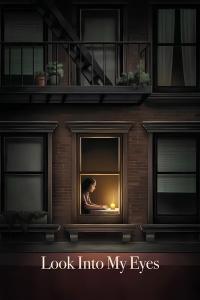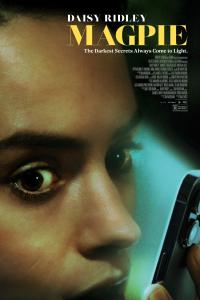Torrent details for "[art pop, chamber pop] (2023) ANOHNI and the Johnsons - My Back Was a Bridge for You to Cross [FLAC]..." Log in to bookmark
Controls:
Language:
 English
EnglishTotal Size:
221.19 MB
Info Hash:
7e0faad5336dbbb624f8e0745f72174be73e8774
Added By:
Added:
11-08-2023 21:24
Views:
575
Health:

Seeds:
0
Leechers:
0
Completed:
1
Review:
It’s been a long time since English singer/songwriter ANOHNI made an album with her band, the Johnsons; 13 years, to be exact. That project, Swanlights, was a magnificent feat in storytelling, in which ANOHNI and her cohort spoke of ghosts and death and love with delicacy and streamlined vividness. Inspired by the work of Björk, ANOHNI was able to forge experimental R&B with pop architecture. A track like “I’m In Love” implemented textures reminiscent of Van Dyke Parks’ Song Cycle, while the piano ballad “The Spirit Was Gone” evoked a cadence and passion akin to Let It Be Me-era Nina Simone. There’s a genuine appreciation and affinity for tones and thematics that encapsulate a vast sonic landscape. ANOHNI’s feather-light, weathered and wayfaring vocal runs crackled and pierced through a haze of soft, sure-fire arrangements. What a gift Swanlights was for listeners. But now, ANOHNI has returned with a Johnsons crew that looks different than it did last decade and a soundscape that is relenting and gorgeously subdued. Her latest offering, My Back Was A Bridge For You To Cross, is a revelatory matter; an album with DNA coded in sensuality and destiny and healing and heroes, told through vignettes of jazz, Motown, funk and post-disco. Adorning the cover of My Back Was A Bridge For You To Cross is a portrait of Marsha P. Johnson, the revolutionary NYC trans activist who, famously, threw the first brick at Stonewall in 1969 and later founded the Street Transvestite Action Revolutionaires (S.T.A.R.) radical group with Sylvia Rivera. Johnson is just one of many guiding lights across ANOHNI’s latest album. When considering how she might begin to transcribe various images of inequity, ecocide and feminism, the songwriter pulled influence from Marvin Gaye’s What’s Going On—a record built off of post-Vietnam War alienation. On Gaye’s masterpiece, a war was still being fought and brothers, friends and strangers were returning home from it in body bags just as fast as they were shipping out in army choppers. On My Back Was A Bridge For You To Cross, ANOHNI sings of the war still raging at home, one that Johnson fought for 50 years ago and one that is still, unceasingly, eating away at our future. What makes My Back Was A Bridge For You To Cross so immense is the composition of its 10-song tracklist. ANOHNI and the Johnsons—the band comprising Jimmy Hogarth, Leo Abrahams, Samuel Dixon, Chris Vatalaro, Martin Slattery and Rob Moose—write about collapse and breakage. On opening track “It Must Change,” stringing synths envelope Hogarth’s guitar-playing, as ANOHNI laments a certain, gut-wrenching desolation. “The death inside of you that you pass into me,” she sings. “The truth is that I always thought you were beautiful in your own way.” It toes the line between personal and ecological; ANOHNI could very well be singing about a bygone lover as much as she could be detailing the hurt of watching the climate unfurl into her. Likewise, on “Can’t,” we get one of ANOHNI’s sharpest sequences: “I miss you, my darling. I miss you, friend,” she sings. “You are dead and oh, so far away, while I am here, stranded among the living. Like so many rotten teeth, I don’t like this place.” These are stories ANOHNI tried to tell on her solo dance album HOPELESSNESS in 2016. It was there that she figured out how to preserve activism in creative work without letting any corporate schtick glaze over the songs. It was an ode to pride with a lick of mutiny; a soundtrack for dreaming and the freedom in finding a true, authentic identity through gutting rage. While the instrumentation was often soothing and sometimes brash and experimental, the meaning of the work rested thick within ANOHNI’s stark, magnanimous language. Now, on My Back Was A Bridge For You To Cross, the bedrock of the album is glossed in soul and psychedelia, and she uses her poetics to reckon with not just her own next chapter but the futures of her close and estranged beloveds. How do we begin articulating our displacement when we are within a dying habitat full of animals gnawing away at one another?ANOHNI begins to answer that question on “Sliver of Ice,” a tune she wrote as a tribute to her dear friend Lou Reed after his passing. The story blossoms from the last words Reed shared with her, and it’s one of her most beautiful compositions to date. “Now that I’m almost gone, sliver of ice on my tongue in the day’s night,” she sings. “It tastes so good, it felt so right, for the first time in my life. The cold ice on my tongue makes its way towards oblivion. How sweet the vista, the portal view, on my way back to black and blue. I couldn’t believe it ‘til tonight. This whole place, made of light, I made myself a home.” Hogarth’s slow, methodical strumming takes center stage behind ANOHNI’s haunting, relentless vocals. There’s a grand shiver of darkness and melancholy that rummages through grief on “Sliver of Ice.” Mortality beats and breathes at the forefront of the album, but ANOHNI refuses to do anything but look towards its blade head-on. “I love you so much more, never knew it before,” she gospelizes up an octave, as the track swells into a crescendo. There’s brutality on My Back Was A Bridge For You To Cross, most deftly on centerpiece “Scapegoat.” It’s an honest, painful look at prejudice and hate crimes towards queer people—and ANOHNI tells the story through the POV of the vile, familiar hand sharpening the knife: “You’re so killable, just so killable,” she sings. “It’s not personal, it’s just the way you were born.” Later in the song, she merges the epidemic of trans death with the ever-timely topic of gun violence. “This one we need not protect. This one’s a freebie for our guns. Take this one to a place, you’d better have your way. Take all of my hate into your flesh and body. It doesn’t matter who you are or where you come from. It doesn’t matter what you’ve got to give or why you want to live. You’re my scapegoat, it’s not personal,” she sings, deconstructing any notion of what boundary a record may or may not dare to break. My Back Was A Bridge For You To Cross is not an easy listen. Full of genocide and grief and survival and extinction, the album is an acheronian portrayal of what it often means to be a trans woman in America, especially in a place where that community is so often underserved—and plagued by homelessness, violence, addiction and death in exile. Much of My Back Was A Bridge For You To Cross is soundtracked by lush instrumentals that slow their pace when acting in unison with ANOHNI’s voice. Hogarth is to thank for that, while Moose’s string arrangements are undeniably sorrowful yet viscerally—and sonically—expanding into some explosion of delicacy in many different forms. But, ANOHNI and the Johnsons do not exit this album without doing their own fair share of shredding. On “Rest,” the band experiments with 1970s prog-rock and melodic, gritty, blues-inspired passages. “Like my guilt waits for reprieve, rest like a stone waits for the sun,” ANOHNI sings in a verse that spools around the talon of poetics with the sharp, crowd-commanding energy of a gospel. “Waiting at the bottom of the ocean, like a jewel waits for the sand. Music for the children, we can’t teach you how to crawl. Demon dancing’s all I know. Rest like the enemy of all that breathes; rest like the enemy of all that sees. In the poison ocean blue, she’ll come home to you.” “Go Ahead” is similarly furious, as ANOHNI’s knuckles whiten while she delivers a shouting, rooftop monologue of unrest. “You are determined to take me down, I won’t stop you,” she careens. “Go ahead and burn it down. Go ahead, kill your friends. You are an addict. Go ahead, hate yourself. I can’t stop you.” It’s the quickest song on the album, yet it’s ANOHNI at her most-vengeful. The lyrics lambast towards ignorance; forming a ballast cell of grief and apathy. On the six-minute, penultimate song “Why Am I Alive Now?,” ANOHNI questions her own survival during a time when nature is collapsing around her and politicians, parents, hunters and neighbors want her and her trans loved ones wiped off the earth. “I don’t want to feel this aching color of our world,” she sings. Slattery provides an energetic, disarming percussion that snares and thumps, while ANOHNI bends her voice into a high falsetto—as she beckons her own desire within the clutches of environmental and personal fatalism: “No more footsteps in the sand, all of our memories are sinking into un-living. I don’t know.” But the thesis statement of My Back Was A Bridge For You To Cross comes on its final track, “You Be Free”: “I danced by violent times,” ANOHNI sings. “It was hard to live, live. It was my time to give, give. Done my work, my back was broke. My back was a bridge for you to cross. Then I wished, in the aftermath, that the Earth would take my life like She took the lives of my mother and my sisters.” I think back to Gaye’s “Mercy Mercy Me,” and how he sang “Poison is the wind that blows from the north and south and east” atop the atoms and fixtures of a soul backbeat. To make such a public-facing album about ecological turmoil and how it so often interacts with racism and transphobia, it was a revelation to even exist 50 years ago. He coated What’s Going On in accessible, radio-friendly chord progressions enveloped in warm, ambitious layers. Upon each revisit, there’s a new fragment of rich instrumentation to discover; a lyric older than ourselves but still timely. And now, in 2023, all of what Gaye sang about still ravages our immediate surroundings, and My Back Was A Bridge For You To Cross holds a similar treasure trove of profuse, ornate melodies and verse. To be a queer person right now is to face a dozen disasters fronted by different adjectives, and ANOHNI arrives on this album with a determination to will her advocacy onto those at the frontlines of a revolution—and she does just that by stripping the songs back all the way to the bone, placing all eyes on the story being told, not the vessel in which it arrives. The scaffolding of ANOHNI’s voice across these 10 tracks is remarkable, and the way she excavates a deep, unrelenting love within them through accessible and awing prose is magnetic, thoughtful and intricate. From a lyrical place, My Back Was A Bridge For You To Cross enacts an exotic balance that is so rarely seen in contemporary music: Her work is fluid, presented both at face-value and with double meanings and widening interpretation. A line like “Your God is failing you, it must change” can take many shapes, depending on who is receiving its message. In turn, all at once orchestral, contradictory, clear-eyed and illuminated, ANOHNI’s songwriting has never been greater. — pastemagazine

Track List:
01 - It Must Change
02 - Go Ahead
03 - Sliver of Ice
04 - Can’t
05 - Scapegoat
06 - It’s My Fault
07 - Rest
08 - There Wasn’t Enough
09 - Why Am I Alive Now
10 - You Be Free
Media Report:
Genre: art pop, chamber pop
Country: UK / USA
Format: FLAC
Format/Info: Free Lossless Audio Codec
Bit rate mode: Variable
Channel(s): 2 channels
Sampling rate: 44.1 KHz
Bit depth: 16 bits
Compression mode: Lossless
Writing library: libFLAC 1.2.1 (UTC 2007-09-17)
Note: If you like the music, support the artist














































